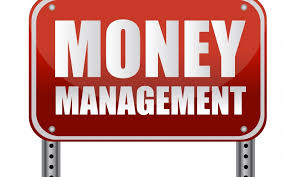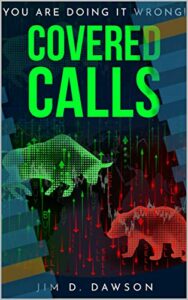10 Ways to Automate Your Finances and Save Money
I recently discovered a secret about one of my best friends. Candice looks as if she has her life together. She and her husband are college educated. They both have good jobs and earn a decent living. They live in a quiet suburb and their children attend the highly-rated public schools located right down the street from their nicely decorated but modest home. They have always bought used cars, and they only splurge once a year for a week long vacation, usually to a National Park.
Nothing about Candice is extravagant…
But as I was sitting on her kitchen bar stool recently, having a cup of coffee and shooting the breeze, I happened to see some open mail sitting in front of me. I didn’t mean to look, but I did…
I was shocked to see a credit card statement for over $28,000. She saw me looking at the statement, and she grabbed it away. I was embarrassed. She was embarrassed.
“I don’t know how we got into such a financial mess . . .” she began.
I started stammering, apologetic for looking at her private mail. She kept talking.
“It’s not like we live a fancy life,” she said. “We originally got this credit card to earn free flights from Southwest. We had to charge $1,000 on the card to get our rewards. Then, we had a few emergencies – our cars needed new tires, and we had to pay our high deductible when I had my gallbladder removed last spring. Other emergencies kept coming, and we only had enough money each month to pay the minimum payment on the credit card.”
I was shocked. I never knew this about Candice. None of our friends knew this about her either.
The cold, hard truth is Candice isn’t alone…
Other smart, educated people seemingly have it “all together” who struggle each month to make ends meet. How do you keep this from happening?

It doesn’t take a degree in finance to instill and practice good financial habits. Good financial habits can simplify your life as well. Try these top 10 tips to automate your finances, and help you stay on budget and encourage healthy saving and spending.
- Utilize direct deposit for your paychecks.
Don’t roll your eyes at me. Some people still don’t take advantage of this super easy benefit. Direct deposit saves time and keeps you from grabbing a quick $100 cash when you deposit your paycheck.
- Make sure you have enough money taken out to cover your tax bill.
Again, this sounds like such a simple task, but one of the problems Candice and her husband encountered was when she changed jobs, she didn’t have enough taxes held back from her monthly paycheck. She and her husband were surprised in March when the accountant gave them their tax forms with an amount due flagged with a sticky note. They had enough to cover the taxes, but not enough to pay on their credit card that month. And then the downward financial spiral continued.
Talk to your accountant to make sure you have an appropriate amount held back each pay period.
- Automatically contribute to your 401(k) or retirement account each pay period.
If you work for a company that matches your contribution, contribute to receive maximum benefits. It’s practically free money.
Ben Franklin, no stranger to writing about money, said, “If you would be wealthy, think of saving as well as getting.” I hate to disagree with good old Ben, but if your money is automatically transferred into a retirement account, you don’t have to “think of saving.”
- Utilize a health savings account.
Candice and her family are blessed with good health. They exercise regularly and eat well. But when her 7th-grade son came home from school complaining about not seeing the board, Candice and her husband spent an easy $350 for an eye exam, glasses, and contacts (because God forbid, he could NOT wear glasses to school!)
Then, the following month, Candice’s daughter took a trip to the ER after she thought she broke her foot landing awkwardly during gymnastics class.
If Candice had a health savings account, the money would have already been set aside for those emergencies. Instead, they had to put their son’s contacts on their credit card. Besides, there is a tax benefit for using a health savings account. The money you set aside for health or medical-related expenses is not taxed.
- Open a college savings plan before your child’s first birthday, and have the contribution automatically deducted each month.
Some states give a tax benefit for contributing to a 529 plan, and most have very reasonable monthly minimum contributions. In most cases, this money can be used for trade school or vocational school.
Trust me, having an 18-year-old is stressful enough. You don’t want to worry how you are going to pay for your child’s college education during his or her senior year of high school.
- Automatically contribute to a Roth IRA.
I won’t even pretend to be an expert in investing, but I do know that Roth IRAs are a great deal. Traditional IRA contributions are tax deductible.
- Schedule an automatic transfer into an emergency fund each month.
If your definition of an “emergency” is a sale at Nordstrom, then consider having that account at a different institution than the one you use for daily banking. This money should be out of sight and out of mind, and should be saved for REAL emergencies.
- Schedule an automatic transfer to an account for a new car account each month.
No matter what you drive, you know it won’t last forever. Set up another account to put aside money for your next car. Imagine yourself walking onto a lot four years from now with cash in your pocket for a new car. You do not have to finance vehicles!
I know most of these tips are centered around saving money, but automating your spending can also give you financial freedom, making it easier to save money.
- Schedule your mortgage payment or rent to be automatically deducted from your account right after you are paid.
When Candice was spilling the beans about their financial worries, she reassured me that she and her husband were at least current with their mortgage.
Since mortgage or rent is usually the most expensive item on the budget, skipping a payment can easily lead to financial ruin. Having this payment automatically deducted, especially if you do so right after receiving a paycheck, can make you feel secure that at least you will be able to keep a roof over your head.
- Automate your utility payments.
I hate to admit it, but I don’t always follow my advice on this. I know scheduling my utility bills to be automatically withdrawn would save time, but I like to look at bills that vary in amounts each month. Most of the time cell phone, cable, and car insurance bills are the same each month, but our gas, electricity, and water bills vary greatly depending on our usage as well as the season.
For those of you new to the world of automated finances, here is a word of caution: Set up the automatic withdrawals for the same day each month. If you are paid on the 15th of each month, set up your payments for the 16th.
Since the day of the awkward conversation, Candice has started a home business to help pay off her credit card debt. After she pays of her credit card, she plans to automate her finances to help her family get back on the right financial track.





